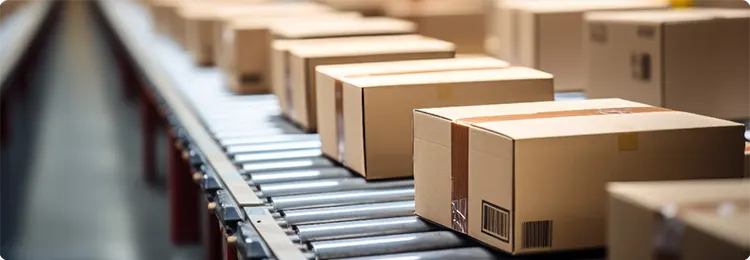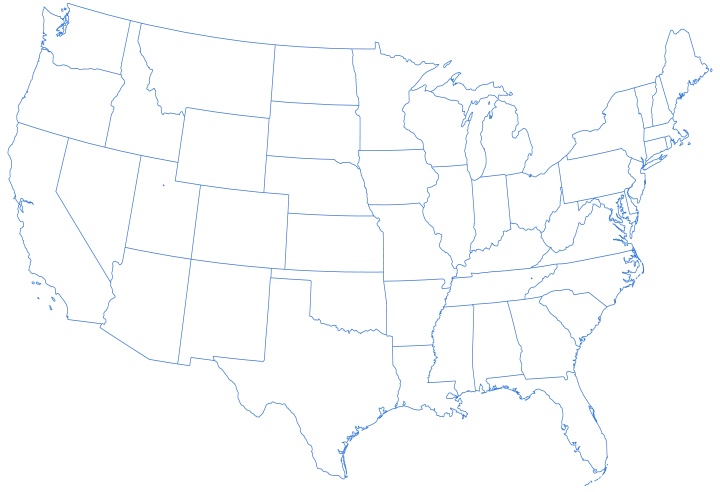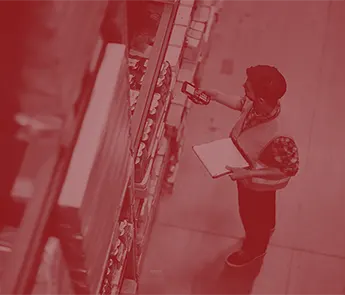National fulfillment services for ecommerce businesses
Today’s consumers won’t stick around for slow shipping or negative delivery experiences. They expect two-day shipping and have little patience for delays and errors.
Discover how the right national fulfillment company can help you keep customer satisfaction high while boosting revenue and growing your business.
Let’s talk“Homestead Brands sees 10X growth with Red Stag Fulfillment”
99.93%
on-time order completion
99.6%
order accuracy
37,000+
packages shipped to date

When we worked with our former 3PL, if we had organizational and technical issues—and we had a lot—their customer support was hit or miss at best. With Red Stag, we don’t have to worry about that.
Meet customers’ expectations with national fulfillment services
Customers want their orders to arrive right away. If you don’t meet their expectations, they may go running to a competitor.
In fact, 90% of shoppers expect businesses to offer two- or three-day shipping, and 30% expect same-day. Plus, 56% of all abandoned carts are due to shipping-related concerns during checkout.
And, if you’re in Amazon’s Seller Fulfilled Prime program (or want to apply), two-day shipping is more than just a nice-to-have. It’s a requirement.
In other words, quickly delivering the correct items can help you capture more revenue and stay competitive in the market. But that’s easier said than done on your own.

Benefits of a national 3PL provider
Thirty-seven percent of customers won’t return to a retailer after a bad delivery experience.
Take a look at the top benefits a national fulfillment provider can offer to help you avoid that scenario.

Red Stag Fulfillment has been exactly what I’d hoped for when I started. I never envisioned that we would have had this much growth — and they have grown with us seamlessly.
How to find the right national fulfillment company
If keeping customers happy with fast, efficient fulfillment has become increasingly difficult, it might be time to outsource these tasks. Before partnering with a national fulfillment company, make sure they can help you in the following ways.

Reduce operational stress
Partner with a reliable third-party logistics provider to take the burden off your team so you can focus on growing your business instead of just running it.

Boost customer satisfaction
Fulfillment and shipping errors can ruin customer satisfaction. Look for dependable national third-party logistics services to keep folks smiling with accurate, fast shipping.

Improve efficiency
Think of the national 3PL company you hire as an extension of your business. You need efficient logistics solutions to help boost your business’s revenue and reputation.

Scale with your needs
Partner with an experienced supply chain solutions company to get access to their existing infrastructure and expertise, helping support your expansion goals.
Red Stag Fulfillment: national fulfillment solution
Red Stag Fulfillment was founded by entrepreneurs who were tired of being let down by supply chain management solutions. They built what we feel is the best third-party logistics company in the country, able to give you reliable, high-quality fulfillment and impeccable service.
National fulfillment center locations
Our fulfillment centers are strategically located, so you can reach 96% of American addresses in two days or less with ground shipping. This helps you keep customer satisfaction high without stocking a bunch of warehouses all over the country.
Select one or both of our locations to see how quickly your customers can receive their orders.
Red Stag intentionally has only two locations.
See why that could be better for your brand.
Hint: We can reach 96% of the country in two days with ground shipping.











Red Stag’s fulfillment services
Red Stag is a complete fulfillment service, providing the support your ecommerce business needs to achieve the growth you’re after. Here are some of the ways Red Stag can help you grow.
Ecommerce order fulfillment
Keep customers happy with same-day fulfillment and fast delivery. Our accuracy guarantees and strategically placed warehouses keep your business moving.
Omnichannel fulfillment
Give customers a consistent experience across channels, reduce inventory costs, and improve order accuracy with omnichannel fulfillment.
Inventory planning
Knowing how much to stock starts with knowing your customers. We’ll dig deep into the data to predict what you’ll need and help cut costs with inventory planning.
Kitting and assembling
Whether you sell subscription boxes or gift sets, our kitting and assembly services allow you to outsource fulfillment while providing highly personalized products.
Warehouse services
Our comprehensive 3PL warehousing and distribution services can handle all of your needs, from inventory management to shipping items out the door and everything in between.
Pick and pack services
We offer one of the most accurate pick-and-pack warehouse services in the industry. Count on us to keep your customers satisfied with the right items and quantities.
Amazon fulfillment alternative
With accurate fulfillment and fast shipping, we can serve as your Amazon fulfillment alternative. Sell on the platform without the headache of shipping—the best of both worlds.
Our fulfillment guarantees
At Red Stag Fulfillment, we stand behind our work with industry-leading guarantees you won’t find anywhere else.

Dock-to-stock in 2 business days
We receive all shipments in less than two days because “Out of Stock” is never okay.

No shrinkage allowed
Once we receive your product, we won’t lose it or damage it.
P.S. Ask other 3PLs about their shrinkage allowance.

Pick & pack accuracy
We get the right stuff to the right customer, or we’ll pay you for the mistake.

On-time shipments
We get orders out the door on time, every time—with same-day shipping available.
Reach out now to discover how your business can win in the national market
Let’s talkGet more with Red Stag Fulfillment

Same-day shipping
Orders ship the same day they’re received, guaranteed.

Customized packaging
Send parcels customized with your brand information or images.

Kitting services
Create personalized packages for custom orders or subscription-based services.

Returns management
We’ll handle customer returns customized to meet your needs.
See what our clients have to say
Reach out to start a conversation

Discover how our national fulfillment services can help your business grow.











